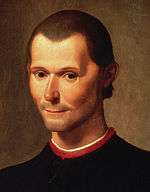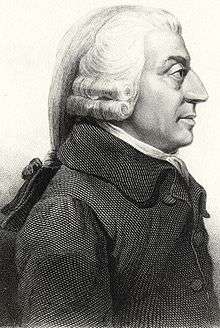Classical Political Economics
Introduction
The classical branch studies range from the conservative philosophers such as Machiavelli to liberals such as Adam Smith or critics of liberalism such as Marx.
Before The Enlightenment
Hammurabi
Machiavelli

Hobbes
Liberalism
Locke
Rousseau
A French philosopher and writer born in Switzerland, he believed that the natural goodness of man was warped by society, most of his ideas were influenced by the French Revolution.
Smith

Bentham
Liberalism
Classical liberalism came from the philosophy of the Enlightenment of the 18th century. Liberals generally believe that individuals are virtuous people who can more or less govern themselves by a mixture of this virtue and by rationality (which also draws from the Enlightenment idea that there is a definite Truth in the world, and that Truth may be found by actively searching for it and by applying logic to facts). Since liberals believe that individuals are naturally virtuous, they can and should be able to govern themselves and to decide the paths of their own lives with as little government intervention as possible. Liberals are not anarchists because they do recognize that a state is important in order to control the people as a whole, but they do believe that the state which governs least is the one which governs best.
Alternatives To Liberalism
Malthus
Veblen
List
Hegel
Marx
And finally, the division of labor offers us the first example of how, as long as man remains in natural society, that is, as long as a cleavage exists between the particular and the common interest, as long, therefore, as activity is not voluntarily, but naturally, divided, man’s own deed becomes an alien power opposed to him, which enslaves him instead of being controlled by him. For as soon as the distribution of labor comes into being, each man has a particular, exclusive sphere of activity, which is forced upon him and from which he cannot escape. He is a hunter, a fisherman, a herdsman, or a critical critic, and must remain so if he does not want to lose his means of livelihood; while in communist society, where nobody has one exclusive sphere of activity but each can become accomplished in any branch he wishes, society regulates the general production and thus makes it possible for me to do one thing today and another tomorrow, to hunt in the morning, fish in the afternoon, rear cattle in the evening, criticize after dinner, just as I have a mind, without ever becoming hunter, fisherman, herdsman or critic. (The German Ideology)
Role Of Individuals
Role Of The State
Private Property
This Content page or section of Political Economy is a stub.
You can help Wikibooks by expanding it.